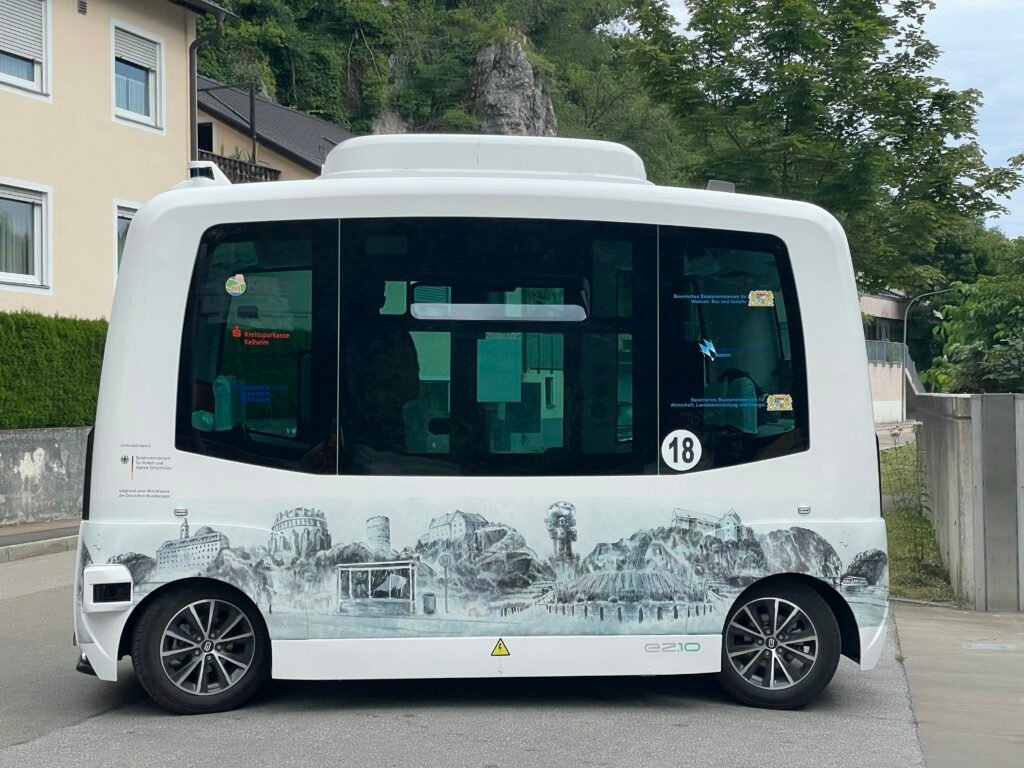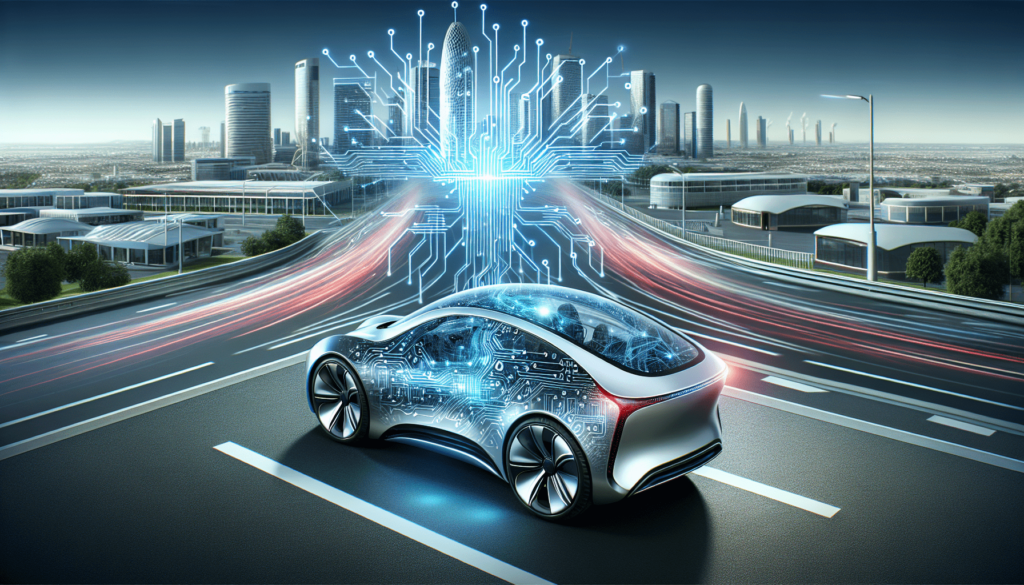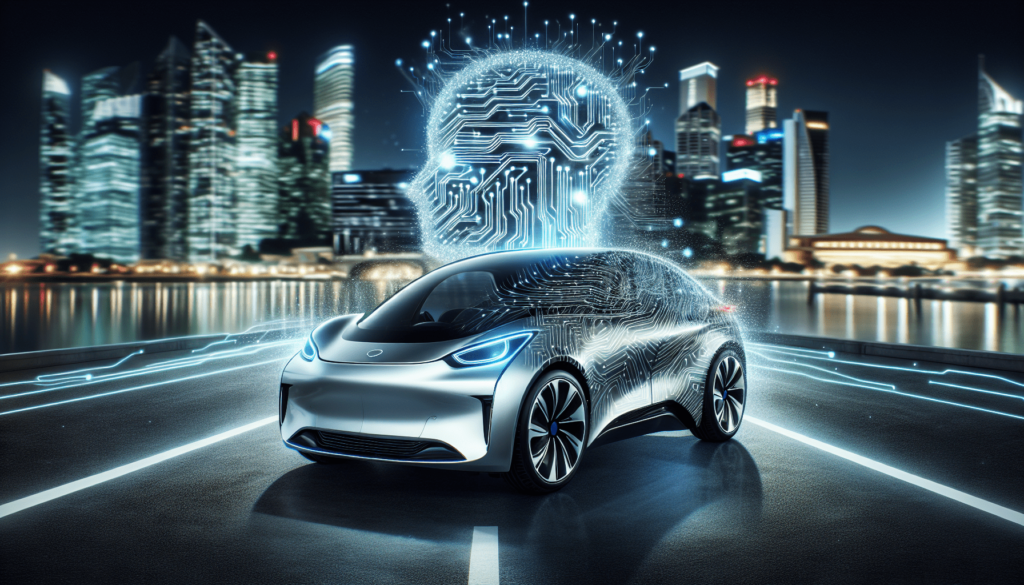Imagine cruising down the highway in an electric vehicle that not only drives itself but also makes real-time decisions to optimize its performance and ensure your safety. This isn’t a scene from a sci-fi movie; it’s the present reality, thanks to the integration of artificial intelligence (AI) into electric vehicles (EVs). From enhancing battery life to providing personalized in-car experiences, AI is reshaping what it means to drive an electric car. Let’s take a closer look at how AI is making electric vehicles smarter, safer, and more efficient than ever before.
Overview of AI in Electric Vehicles
Definition of Artificial Intelligence
When you hear “Artificial Intelligence,” you might picture sci-fi movies with robots and supercomputers. However, AI is more commonplace than you think, especially in today’s technology-driven world. It refers to the simulation of human intelligence in machines that are programmed to think like humans and mimic their actions. Essentially, these machines can learn from experience, adjust to new inputs, and perform human-like tasks.
The Importance of AI in Modern Electric Vehicles
Now, why is AI a big deal in modern electric vehicles (EVs)? Well, it’s transforming the automotive industry, making EVs smarter, safer, and more efficient. From enhancing battery life to enabling self-driving capabilities, AI is at the forefront of the electric vehicle revolution. Simply put, AI in EVs is not just about innovation; it’s about making your ride more eco-friendly, convenient, and enjoyable.
Key Areas of AI Application in Electric Vehicles
AI finds its way into various aspects of the electric vehicle ecosystem. Battery management systems, autonomous driving features, smart navigation, and traffic management are just the tip of the iceberg. Vehicle-to-everything communication, infotainment systems, predictive maintenance, energy consumption optimization, and even the manufacturing process of EVs are all areas where AI plays a pivotal role. Now, let’s dive deeper into these applications.
Enhanced Battery Management Systems
AI-driven Algorithms for Optimal Charging
Your electric vehicle’s battery is its heart. AI-driven algorithms ensure this heart keeps beating strongly by determining the most efficient charging patterns. This involves analyzing heaps of data to understand the best times to charge and discharge, thus optimizing your battery’s health and longevity.
Predictive Maintenance to Extend Battery Lifespan
Imagine if your car could tell you about a battery issue before it even happens. That’s predictive maintenance for you. By monitoring battery health in real time, AI can predict potential failures or maintenance needs, saving you from unexpected breakdowns and costly repairs.
Thermal Management Through Intelligent Monitoring
If you’ve ever wondered why your EV’s battery performance dips in cold weather, temperature is the key. AI helps in intelligently monitoring and managing the battery’s thermal conditions, ensuring it operates within the optimal temperature range. This not only boosts performance but also extends battery life.

Autonomous Driving Features
Levels of Autonomy in Electric Vehicles
The dream of fully autonomous electric vehicles is closer than ever, thanks to AI. From cars that assist with parking to those that can navigate highways on their own, autonomy levels vary. Level 0 represents no autonomy, while Level 5 signifies complete autonomy. Most EVs today hover between Levels 2 and 3, offering significant driving assistance.
Integration of AI in Self-driving Technology
AI is the brain behind the evolving self-driving technology in EVs. Through complex algorithms, electric vehicles can interpret sensor data, making split-second decisions that mimic human driving instincts. This integration is crucial for the advancement towards fully autonomous driving.
Sensor Fusion and Decision-making Algorithms
Sensor fusion is about combining data from various sensors (like cameras and radars) to get a comprehensive understanding of the vehicle’s surroundings. AI uses this data to make informed decisions, from changing lanes to avoiding obstacles, ensuring a safe and smooth driving experience.
Smart Navigation and Traffic Management
Real-time Traffic Data Analysis
Gone are the days of getting stuck in traffic jams. AI in EVs can analyze real-time traffic data to suggest the fastest routes, turning your daily commute into a breeze.
Optimized Route Planning Using AI
AI doesn’t just find a quick route; it finds the best route. By considering factors like road conditions, weather, and your driving habits, AI ensures that the path chosen is not only time-efficient but also energy-efficient.
Energy-efficient Routing
Speaking of efficiency, AI excels at planning routes that minimize energy consumption. This means you can drive further on a single charge, reducing the frequency of charging stops on longer trips. It’s all about making your journey as efficient as your vehicle.

Vehicle-to-Everything (V2X) Communication
The Basics of V2X Technology
Vehicle-to-Everything, or V2X, is a communication system that allows vehicles to “talk” to moving parts of the traffic system around them. This includes other vehicles, pedestrian devices, infrastructure, and the grid.
AI’s Role in Vehicle-to-Grid (V2G) Communications
In the realm of V2G, AI helps manage the two-way energy exchange between your vehicle and the power grid. This smart interaction not only supports the grid during peak times but also allows EV owners to sell back excess energy, turning EVs into mobile power stations.
Enhancing Safety Through Vehicle-to-Vehicle (V2V) Communication
On the safety front, V2V communication is a game-changer. AI processes the data exchanged between vehicles to prevent accidents by alerting drivers of potential hazards. This collective intelligence significantly increases road safety for everyone.
Infotainment and Driver Assistance Systems
Personalized In-car Experience Using AI
Imagine stepping into your EV and being greeted by your favorite playlist, or having the cabin pre-cooled to your preferred temperature. AI makes these personalized in-car experiences possible, learning from your habits and preferences to make every drive special.
Advanced Driver-assistance Systems (ADAS)
ADAS are systems that enhance vehicle safety and driving. With features like adaptive cruise control, lane-keeping assist, and automatic braking, AI plays a vital role in reducing human error and making driving less stressful.
Voice-activated Controls and AI Assistants
Voice-activated controls are not just convenient; they’re a critical safety feature, allowing you to keep your eyes on the road. AI assistants take this a step further by understanding natural language, making interactions more intuitive and seamless.

Predictive Maintenance and Diagnostics
AI Algorithms for Real-time Vehicle Diagnostics
Thanks to AI, electric vehicles can continuously monitor their health, alerting you to potential issues before they escalate. This real-time diagnostics capability ensures that your EV remains in top condition.
Predicting Vehicle Part Failures Before They Happen
By analyzing data from various vehicle sensors, AI can predict when parts might fail. This foresight allows you to address problems proactively, avoiding roadside breakdowns and ensuring a smoother drive.
Schedule Maintenance Services Proactively
With AI’s predictive capabilities, scheduling maintenance becomes a proactive rather than reactive process. This not only saves you time but also helps in maintaining the resale value of your EV by ensuring it remains in optimal condition.
Energy Consumption Optimization
Machine Learning Models for Driving Pattern Analysis
Your driving patterns hold the key to optimizing energy consumption. AI uses machine learning models to analyze these patterns, adjusting your vehicle’s energy use to match your driving style and conditions. This means more efficient drives, every time.
AI in Optimizing Energy Consumption
Beyond adjusting to driving patterns, AI actively seeks ways to reduce energy consumption. Whether it’s optimizing route choices or managing battery usage, AI is always working to make your EV more energy-efficient.
Intelligent Regenerative Braking Systems
Regenerative braking is a feature that recovers energy usually lost during braking, storing it back in the battery. AI enhances this process by optimizing when and how much energy to recuperate based on driving conditions, maximizing your EV’s range.

AI in Manufacturing of Electric Vehicles
Robotic Automation in Vehicle Assembly
AI isn’t just about the vehicles themselves; it’s also revolutionizing how they’re made. In manufacturing, robotic automation powered by AI leads to more efficient, precise, and faster assembly processes, ensuring high-quality vehicles roll off the line every time.
Quality Control Through AI-driven Analytics
Quality is paramount, and AI-driven analytics in manufacturing ensures that every EV meets stringent standards. By analyzing data from the production line, AI can identify and rectify defects early, guaranteeing superior vehicle quality.
Customization and Design Optimization Using AI
Personalization is a trend that’s here to stay, and AI facilitates this in EV manufacturing. By understanding customer preferences and feedback, AI helps in customizing vehicles and optimizing designs, making every EV as unique as its owner.
Future Prospects of AI in Electric Vehicles
Potential Innovations in AI for EVs
The future of AI in EVs is as exciting as it is boundless. From even more advanced autonomous driving features to AI-powered interfaces that understand and anticipate your needs, the innovations on the horizon will continue to push the boundaries of what electric vehicles can do.
The Role of AI in Electric Vehicle Sustainability
Sustainability is at the heart of the EV movement, and AI is playing a crucial role in making electric vehicles more eco-friendly. By optimizing energy use, enhancing battery life, and supporting sustainable energy sources, AI is helping make the future of transportation cleaner and greener.
AI’s Impact on the Evolution of Transportation Systems
The integration of AI in electric vehicles is not just transforming the vehicles themselves but the entire transportation ecosystem. From smarter traffic management to energy grids that intelligently interact with vehicles, AI is at the forefront of creating a more efficient, safe, and sustainable future for transportation.
In summary, the integration of artificial intelligence into electric vehicles is a game-changer, making EVs smarter, safer, and more efficient. As technology continues to advance, the role of AI in electric vehicles will only grow, driving us towards a future where our rides are not just vehicles, but intelligent companions on the road.

